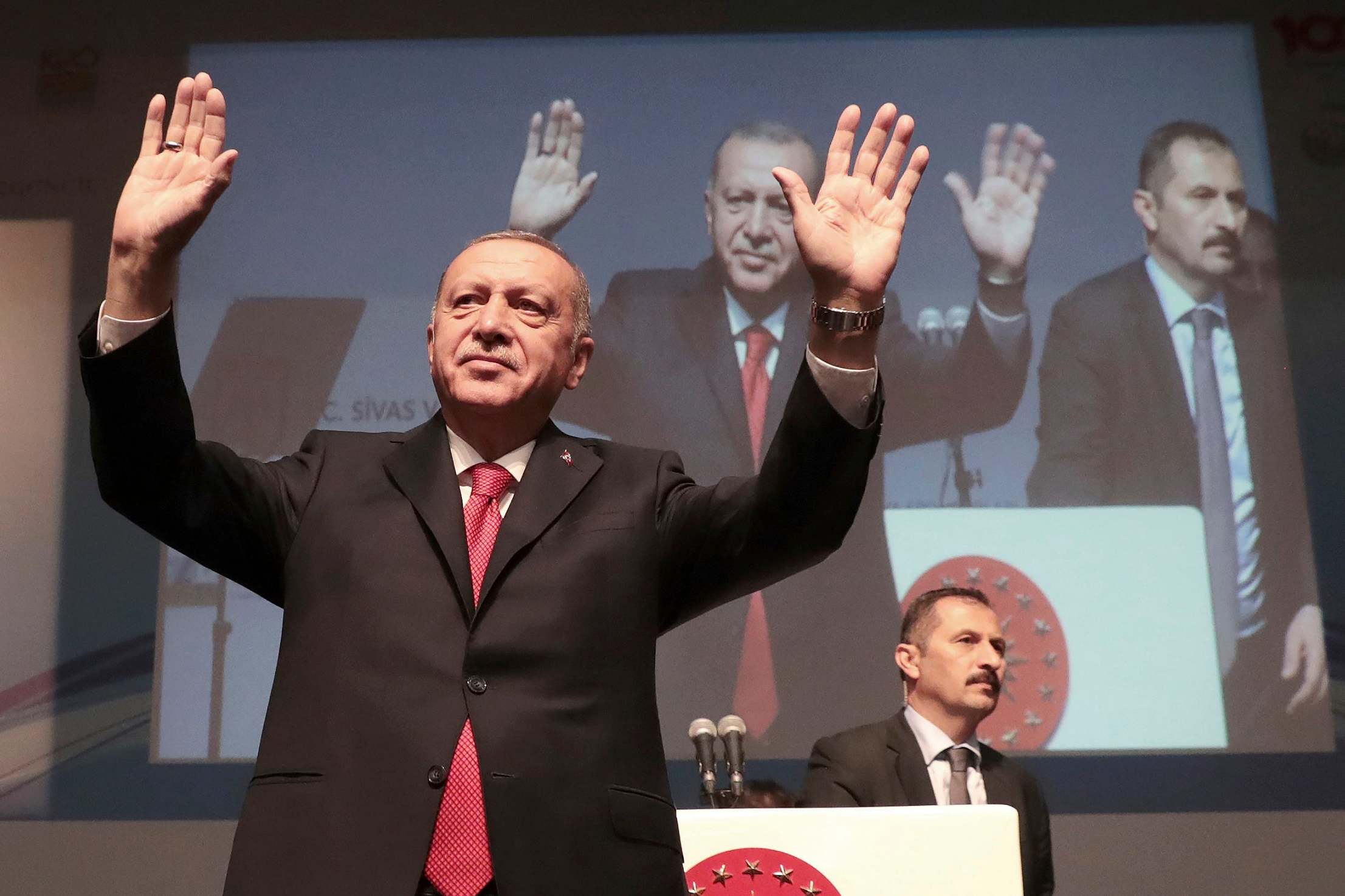Erdogan Rising: How the Turkish president became ‘the most practised populist in the world’
A new book on how Erdogan led a democracy on the fringe of Europe into dictatorship paints a vivid portrait of a man who has dominated the political scene in his country, Kim Sengupta writes


Paramount is the need to secure human rights. The form of rule should be such that the citizen does not have to fear the state, but gives it direction and confidently participates in its administration.”
Thus spake Recep Tayyip Erdogan, the president of Turkey, who, it is often said, sees himself as the new Ottoman Sultan, a ruler involved in a struggle against Saudi Arabia for the leadership of the Sunni world, and whose government continues to detain tens of thousands of people, including lawyers, judges, journalists, police and military officers. Even now, three years after the failed coup blamed on Fethullah Gulen (which the cleric denies), the Turkish state has announced it is hunting down fresh suspects.
In addition to those imprisoned, thousands more have lost their jobs; around a thousand companies, supposedly linked to the cleric exiled in Pennsylvania, worth an estimated $11bn (£8.9m) have been seized, and dozens of media outlets have been shut down.
But Erdogan is not cut from the same mould as some of the other Middle Eastern autocrats, and it would be a mistake to dismiss him as such. Hannah Lucinda Smith describes him in a new biography as “the most skilled and practised populist in the world”. In the era of Donald Trump, Rodrigo Duterte, Victor Orban and others, one may question giving Erdogan the world title. But he has been in the job far longer than the others, and looks set to stay.
Smith’s Erdogan Rising: The Battle for the Soul of Turkey is a fine book showing an aptitude to look way beyond the surface, and an eye for telling details which comes from her being an accomplished journalist based in Turkey. As a correspondent for The Times, and a freelance before that, she has also covered the conflict in Syria, which enables her to place Erdogan’s regional actions, often with the Kurds being the target and accompanied by bellicose rhetoric and action, in context.
In Turkey, Smith witnessed tension boiling over into turbulence, from protests in Gezi Park to the attempted coup and its repercussions, sometimes with individuals caught in Kafkaesque quicksand.
She gives the example of Ahmet Sik, a journalist whose book, The Imam’s Army, charted the Gulenist influence in the state apparatus.That was in 2011 when Erdogan was in alliance with the cleric against the military and Kemalists. The then Gulenist-dominated prosecution service accused Sik of sedition. The followers of the Imam have since been purged from the courts, but the writer was arrested and charged with links to Gulenists and the Kurdistan Workers’ Party (PKK), and sentenced to seven and half years in jail, the term suspended pending appeal.
Erdogan has now been in power long enough to be one of the more recognisable leaders in the world stage. The Turkish president was born in the Kasimpasa district of Istanbul. The family was poor and his CV dwells on how he helped ends meet by selling lemonade and sesame buns in the streets as a teenager.
According to this account he was a very talented footballer who was wanted by big clubs. But his father ended what could have been a glorious career in sport, rather than politics, by forbidding him from going on trials and sending him instead to a religious school.
Erdogan won the mayoral election for Istanbul for his Justice and Development Party (AKP) in 1994, the first Islamist to hold the post. He showed his religious credentials by banning alcohol from municipally owned cafes, and was jailed after breaking secularist laws on inciting religious hatred by reciting a poem including the lines “the mosques are our barracks, the domes our helmets, the minarets our bayonets and the faithful our soldiers”.
Erdogan’s career has continued as prime minister and then president. During his tenure, the latter post has moved from being ceremonial to the political power holder and head of state.
In that time the divisions between his vision of political Islam and the secular state of Ataturk has become pronounced as never before, and is now a defining feature of the nation – the well to do and westernised Kemalists, and the comparatively less affluent conservative supporters of AKP. Erdogan is happy to play on that, making statements like “in this country, there is a segregation of Black Turks and White Turks. Your brother Tayyip belongs to the Black Turks.”
Smith draws out these differences, both overt and nuanced, with her journalistic skills by talking to members of the two tribes.
On Erdogan’s watch the Turkish economy has boomed but also hit trouble. His rule has become increasingly autocratic, and there have been allegations of corruption against members of his family and his coterie. But through all this he has continued to win elections.
Add to this the protests, the coup, the rise of his brand of religion in the region and beyond, the domestic conflict with the PKK and military operations in Syria, and one gets a glimpse into the fascinating world of Recep Tayyip Erdogan. Smith’s book does all this justice.
‘Erdogan Rising: The Battle for the Soul of Turkey’ by Hannah Lucinda Smith is published by William Collins
Join our commenting forum
Join thought-provoking conversations, follow other Independent readers and see their replies
Comments